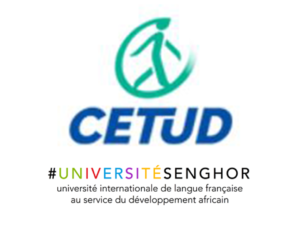
“Road safety management” training
Type of diploma
Short course, university certificate of competence acquisition (4 ECTS)
Target audience
- Technicians in charge of transport and urban mobility projects
- Senior managers and decision-makers
Partners
- CODATU
- Senghor University
- CETUD
Key figures
- 1 training session in 2022
- 35 auditors trained
Periodicity
Replicable on demand
Teaching device and method
This short course is designed as an advanced awareness-raising course for professionals involved in the subject, and therefore does not require any prerequisites.
It is a hybrid course: webinars with international experts are held weekly under the aegis of a local educational coordinator. The participants carry out group work which is presented at the end of the course.
Model
The training course is divided into 5 teaching sequences, spread over 5 weeks (average duration of 75 hours).
As an indication, the pedagogical sequence can be organised as follows:
- UE 1Road safety governance
- UE 2Vehicles and infrastructure
- UE 3Users and health
- UE 4Data collection and the use of new tools
- UE 5Feedback workshop
Expected skills
- Define the major road safety issues at international and national level, understand the main components of a regulatory framework for road safety;
- Understand the levers of action available to public authorities and the necessary coordination mechanisms;
- Improve the control levers of the fleet condition by integrating the new vehicle technologies;
- Identify actions to be prioritised to improve road safety through urban planning;
- Understand the vulnerabilities of different types of users depending on the mode of transport they use;
- Establish communication and awareness actions to be carried out towards road users to limit their vulnerability;
- Know the methodological and technical details of a data collection system and how to make it sustainable;
- To estimate the training needs of the various professions involved in the prevention and management of road accidents
